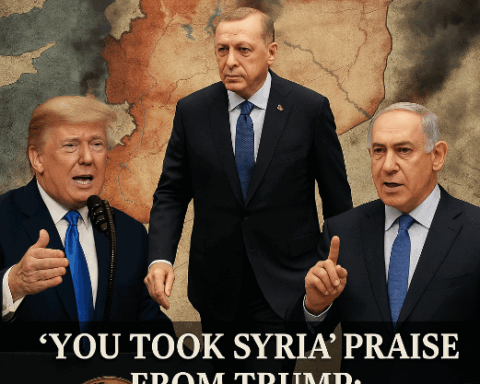In foreign policy, the real moves often happen behind the curtain. In recent years, Turkey’s relations with the United States—particularly during the Trump era—have shown a remarkable closeness. This wasn’t just about personal diplomacy, but also about the role Washington envisioned for Turkey in the Middle East. One of the quieter, yet most concerned observers of this alignment has been the United Kingdom.
Post-Brexit, Britain launched its “Global Britain” vision, seeking a strategic role beyond the European Union. To make this vision credible, it needs to build special ties with regional powers like Turkey. Thus, Turkey’s tilt toward Washington could be seen as a strategic threat to London’s own aspirations.
For Britain, Turkey is a valuable partner both in connecting to Europe and projecting influence in the Middle East. This is why the increasingly close Turkey-U.S. ties, especially those based on defense and military cooperation, have caused unease in London. The personal rapport between Trump and Erdoğan only made this alignment more visible—and more politically symbolic.
On the other side, Washington has been redefining its role in the Middle East. Israel is a central pillar of this architecture, but the U.S. also wants Turkey to act as a key ground operator—handling border operations, military interventions, and crisis management—while America retains the strategic oversight. In this equation, Turkey is expected to act more as an implementer than a true partner.
The UK, sensing a long-term shift, has been deepening its engagement with Turkey. In 2021, the two countries signed a Free Trade Agreement. In 2023, discussions began to expand it further. Migration, security cooperation, and energy issues have also become part of a broader bilateral dialogue.
But the fundamental question remains: Which direction will Turkey choose? Will it align more closely with the United States, accepting its strategic boundaries? Or will it become part of Britain’s post-Brexit geopolitical game?
Turkey has long pursued a policy of balance. But the global order is no longer bipolar—it is moving toward multipolarity. Turkey is no longer just a balancing actor; it is struggling to evolve into a central player. The way it resolves this struggle will shape not only its foreign policy but also its internal dynamics.
Who Turkey walks with is important. But just as important is the path it chooses—and what kind of nation it becomes on that road.
Sources:
-
-
Atlantic Council: What’s behind the strengthening UK-Turkey partnership?
-
Carnegie Europe: Turkey’s Foreign Policy Ambitions Meet Reality
-
Financial Times: UK’s limited leverage in US trade talks
-
Jerusalem Post: Israel and Turkey in new Middle East alignment
-
link: https://www.konuyorum.com
- Trump’s Houthi Statement: Peace Offering or Strategic Retreat? - May 6, 2025
- Turkey’s New Path: London or Washington? - May 6, 2025
- Opinion | The Pentagon’s Star Trim: A Bold Move or Bureaucratic Theater? - May 6, 2025






